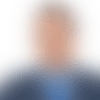RBBC is a term that fantasy owners fear when it comes to running backs. So is the word holdout. Unfortunately, that's the word we're hearing from one of last year's top fantasy runners, Marshawn Lynch. Barring a contract breakthrough, the veteran will not report to Seattle Seahawks camp this week. So, how will this affect his 2014 draft value? Let's look back at how previous holdouts at the position have fared. It's not good ...
John Riggins, Washington Redskins (1981) Riggins rushed for 1,000-plus yards in both 1978 and 1979, but he decided to sit out the entire 1980 season. He didn't return until 1981, after new Redskins coach Joe Gibbs convinced him to make a comeback to the gridiron. Upon his return, Riggins played in just 23 combined games and failed to rush for more than 750 yards in the following two seasons. In fact, he wouldn't reach the 1,000-yard rushing mark again until the 1983 campaign.
Eric Dickerson, Los Angeles Rams (1985) Dickerson, one of the greatest runners in the history of the National Football League, held out of training camp and the first two games of the regular season in 1985. He would return and go on to rush for 1,234 yards and 12 touchdowns in 14 games, which were both career lows. To be fair, though, Dickerson rushed for 1,808 yards with 18 touchdowns as a rookie (1983) and 2,105 yards and 14 touchdowns in his second pro campaign (1984).
Eric Dickerson, Indianapolis Colts (1990) Dickerson held out once again, this time as a member of the Colts, heading into the 1990 season. This holdout was far more detrimental to his statistical output than his previous holdout, as he missed five contests and failed to rush for 1,000 yards for the first time in his career. Dickerson also averaged what was a career-low 4.1 yards per carry. The Hall of Famer would never rush for 1,000 or more yards in a single season again.
Emmitt Smith, Dallas Cowboys (1993) One of the greatest running backs in fantasy football, Smith held out of camp and missed the first two games of the 1993 campaign. Missing time didn't seem to do much, though, as Smith rushed for 1,486 yards and averaged what would be a career-best 5.3 yards per attempt. He also caught 57 passes for 414 yards and scored a combined 10 touchdowns on the season. Smith is one of the few runners who wasn't affected by holding out of workouts.
Jamal Anderson, Atlanta Falcons (1999) Anderson was a fantasy superstar in 1998, posting 1,846 rushing yards and 16 total touchdowns for the Falcons. Of course, he did it while carrying the football a total of 410 times. He held out of training camp the following year before eventually agreeing to a terms with the team. Anderson went on to play in just two games before tearing his ACL during a Monday night loss to the Dallas Cowboys. He was never the same player again.
Marshall Faulk, St. Louis Rams (1999) One of the two best running backs in fantasy football history (at least for my money), Faulk held out of the first 12 days of training camp in 1999 before the Rams rewarded him with a new contract. Faulk went on to start all 16 games, totaling a career-best 2,429 scrimmage yards and a combined 12 touchdowns. He also put up what would be a career-best 5.5 yards-per-carry average and helped lead a lot of fantasy owners to a championship.
Corey Dillon, Cincinnati Bengals (2000) Dillon decided to hold out of training camp in 2000 in what became a tense situation with the Bengals, who had already lost their top wideout, Darnay Scott, to a broken leg. The two sides eventually agreed to a new one-year deal, and Dillon returned in time for Week 1 and played in all 16 games. He had a productive season, rushing for what was at the time a career-best 1,435 yards. It should be noted that Dillon was only 26 at the time.
Larry Johnson, Kansas City Chiefs (2007) A fantasy stud in his salad days, Johnson held out of training camp in 2007 before agreeing to a new deal. He would go on to miss eight games with a bum foot and saw massive declines in statistical production across the board. L.J. would never rush for more than 874 yards in a season the rest of his career. You could argue that Johnson's 416 carries in 2006 - and not his 2007 holdout - was the reason for his quick fall from fantasy grace.
Steven Jackson, St. Louis Rams (2008) Jackson held out for 27 days before signing a new six-year contract before the 2008 season. While he did rush for 1,000-plus yards for the fourth straight season, Jackson also missed four games due to an injured thigh. It was the second year in a row that he missed four contests. The Oregon State product, who had rushed for over 1,500 yards with 13 touchdowns and was a fantasy star in 2006, was a disappointment overall after holding out.
Chris Johnson, Tennessee Titans (2011) At one time an elite runner in fantasy football, Johnson held out of camp but returned in time to start all 16 games during the 2011 season. He would go on to have his worst statistical campaign at the NFL level, rushing for career lows in yards (1,047) and touchdowns (4) while finishing 14th in fantasy points among running backs. That was not what owners were expecting, considering CJ2K's first-round price tag in almost all drafts.
Maurice Jones-Drew, Jacksonville Jaguars (2012) Jones-Drew held out for 38 days in 2012 before realizing owner Shad Khan wasn't going to budge on his contractual demands. The U.C.L.A. product would return to play in a mere six games due to an injured foot that required a surgical procedure to repair. Jones-Drew was back on the gridiron last season, but he rushed for a mere 803 yards with five touchdowns and finished with his worst single-season yards-per-carry average (3.4) as a pro.
Michael Fabiano is an award-winning fantasy football analyst on NFL.com and NFL Network and a member of the Fantasy Sports Writers Association (FSWA) Hall of Fame. Have a burning question on anything fantasy related? Tweet it to _**@MichaelFabiano**_ or send a question via **Facebook**!




